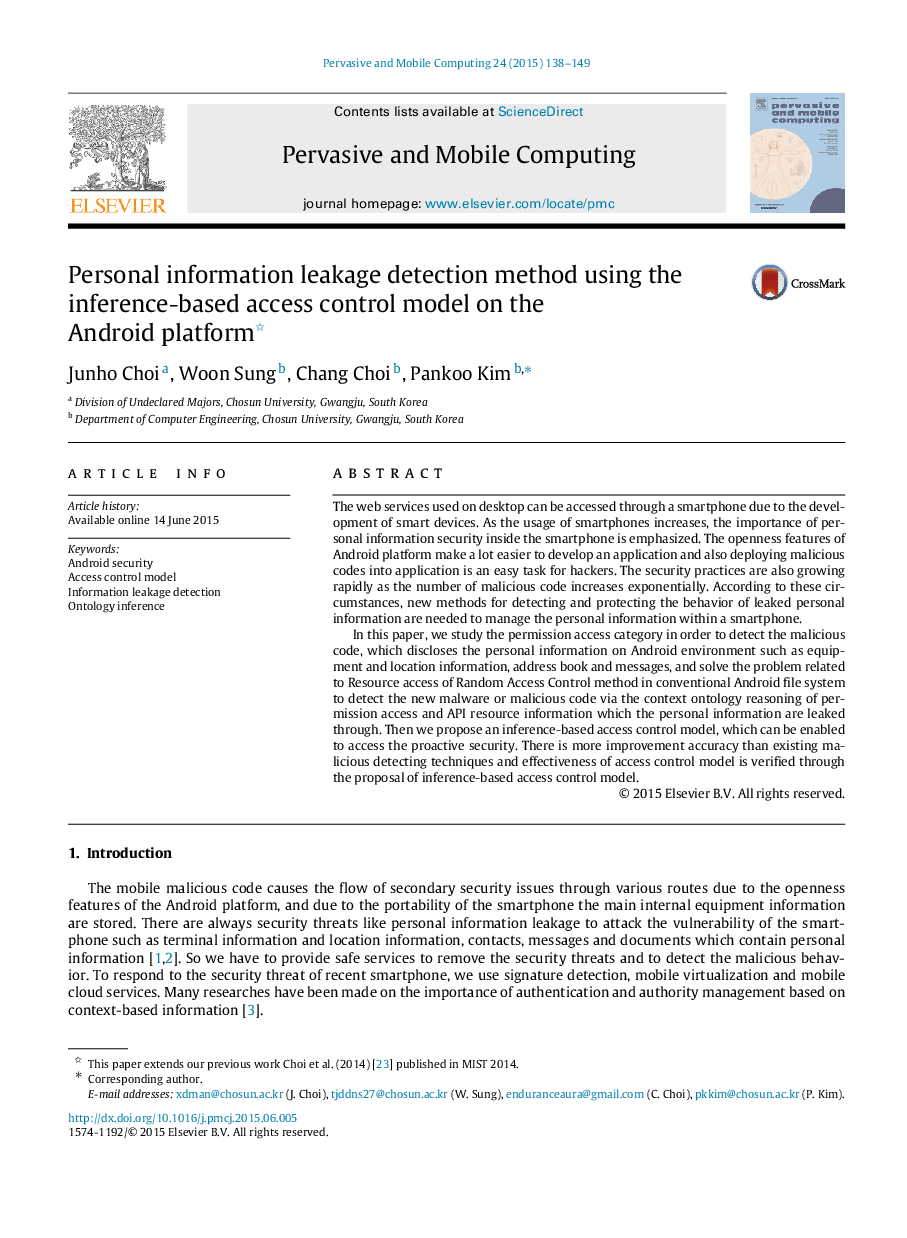| Article ID | Journal | Published Year | Pages | File Type |
|---|---|---|---|---|
| 465923 | Pervasive and Mobile Computing | 2015 | 12 Pages |
The web services used on desktop can be accessed through a smartphone due to the development of smart devices. As the usage of smartphones increases, the importance of personal information security inside the smartphone is emphasized. The openness features of Android platform make a lot easier to develop an application and also deploying malicious codes into application is an easy task for hackers. The security practices are also growing rapidly as the number of malicious code increases exponentially. According to these circumstances, new methods for detecting and protecting the behavior of leaked personal information are needed to manage the personal information within a smartphone.In this paper, we study the permission access category in order to detect the malicious code, which discloses the personal information on Android environment such as equipment and location information, address book and messages, and solve the problem related to Resource access of Random Access Control method in conventional Android file system to detect the new malware or malicious code via the context ontology reasoning of permission access and API resource information which the personal information are leaked through. Then we propose an inference-based access control model, which can be enabled to access the proactive security. There is more improvement accuracy than existing malicious detecting techniques and effectiveness of access control model is verified through the proposal of inference-based access control model.
